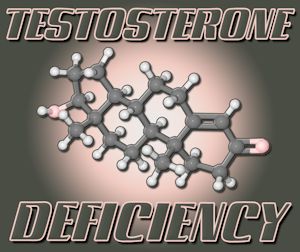Introduction to Peptide Therapies
Peptide therapies have emerged as a groundbreaking approach in the management of various genetic disorders, offering new hope for conditions that were previously difficult to treat. These therapies utilize short chains of amino acids, known as peptides, which can be designed to interact with specific molecular targets within the body. This targeted approach allows for more precise treatment strategies, minimizing side effects and improving patient outcomes.
Understanding Genetic Disorders
Genetic disorders arise from abnormalities in an individual's DNA, leading to a range of health issues from mild to severe. These disorders can affect any part of the body and can be inherited or occur spontaneously. Common genetic disorders among American males include cystic fibrosis, hemophilia, and certain forms of muscular dystrophy. Traditional treatments for these conditions often focus on managing symptoms rather than addressing the underlying genetic cause.
The Science Behind Peptide Therapies
Peptide therapies work by mimicking or blocking the action of natural peptides in the body. For instance, in the case of cystic fibrosis, peptides can be designed to enhance the function of the CFTR protein, which is defective in this disorder. Similarly, for hemophilia, peptides can be used to promote blood clotting by activating specific clotting factors. The precision of peptide therapies lies in their ability to target specific proteins or pathways, offering a more tailored approach to treatment.
Advantages of Peptide Therapies
One of the primary advantages of peptide therapies is their high specificity. Unlike traditional medications, which can affect multiple systems in the body, peptides can be engineered to interact with only the intended target. This reduces the risk of adverse effects and increases the efficacy of the treatment. Additionally, peptides are generally well-tolerated and can be administered in various forms, including injections, oral tablets, and even nasal sprays.
Current Applications in Genetic Disorders
Several peptide therapies are currently in clinical trials or have been approved for use in treating genetic disorders. For example, the peptide therapy known as elamipretide is being investigated for its potential to improve mitochondrial function in patients with Barth syndrome, a rare genetic disorder affecting males. Another peptide, known as vosoritide, has shown promise in treating achondroplasia, the most common form of dwarfism.
Challenges and Future Directions
Despite their potential, peptide therapies face several challenges. One major hurdle is the stability of peptides in the body, as they can be quickly degraded by enzymes. Researchers are working on developing more stable peptide formulations and exploring new delivery methods to overcome this issue. Additionally, the cost of developing and producing peptide therapies can be high, which may limit their accessibility.
Looking to the future, the field of peptide therapies holds immense promise. Advances in biotechnology and genetic engineering are paving the way for the development of more effective and affordable peptide treatments. As research progresses, it is likely that peptide therapies will become a standard part of the treatment arsenal for genetic disorders, offering hope for improved quality of life for affected individuals.
Conclusion
Peptide therapies represent a significant advancement in the treatment of genetic disorders, offering a targeted and potentially more effective approach than traditional medications. For American males affected by these conditions, the advent of peptide therapies could mean better symptom management and, ultimately, a higher quality of life. As research continues to evolve, the future looks bright for the integration of peptide therapies into mainstream medical practice.
Contact Us Today For A Free Consultation

- Peptides and Epigenetics: Enhancing Men's Health and Disease Prevention Strategies [Last Updated On: February 20th, 2025] [Originally Added On: February 20th, 2025]
- Exploring the Advancements in Peptide Therapy for Allergy Management in American Males [Last Updated On: February 28th, 2025] [Originally Added On: February 28th, 2025]
- An Overview of Peptides [Last Updated On: March 2nd, 2025] [Originally Added On: March 2nd, 2025]
- Exploring the Role of Bioactive Peptides in Diabetes Management: Therapeutic Potential and Challenges [Last Updated On: March 3rd, 2025] [Originally Added On: March 3rd, 2025]
- Unveiling the Anti-Aging Secrets: The Role of Peptides in Modern Medicine [Last Updated On: March 4th, 2025] [Originally Added On: March 4th, 2025]
- Exploring Peptides as Therapeutic Agents for Male Neurological Disorders [Last Updated On: March 4th, 2025] [Originally Added On: March 4th, 2025]
- Advancements in Peptide-Based Immunotherapy for American Male Cancers [Last Updated On: March 5th, 2025] [Originally Added On: March 5th, 2025]
- Exploring Peptide Therapeutics in Treating Diseases Prevalent Among American Males [Last Updated On: March 6th, 2025] [Originally Added On: March 6th, 2025]
- Unveiling the Potential of Antimicrobial Peptides in Modern Medicine: A Comprehensive Overview [Last Updated On: March 7th, 2025] [Originally Added On: March 7th, 2025]
- The Transformative Power of Peptides in Men's Skincare: A Comprehensive Guide [Last Updated On: March 8th, 2025] [Originally Added On: March 8th, 2025]
- Revolutionizing Male Health: The Power of Biomimetic Peptides in Regenerative Medicine [Last Updated On: March 9th, 2025] [Originally Added On: March 9th, 2025]
- Advancements in Therapeutic Proteins and Peptides: A Focus on Developments and Challenges for American Males [Last Updated On: March 12th, 2025] [Originally Added On: March 12th, 2025]
- Revolutionizing Health: The Role of Peptides in Precision Medicine for American Males [Last Updated On: March 13th, 2025] [Originally Added On: March 13th, 2025]
- Unveiling the Power of Peptides in Wound Healing and Tissue Regeneration [Last Updated On: March 15th, 2025] [Originally Added On: March 15th, 2025]
- Peptides: Revolutionizing Metabolic Health Management for American Males [Last Updated On: March 16th, 2025] [Originally Added On: March 16th, 2025]
- Peptides and Gene Therapy: A New Frontier in Men's Health Treatment [Last Updated On: March 16th, 2025] [Originally Added On: March 16th, 2025]
- Peptides Revolutionize Respiratory Health Management in American Men [Last Updated On: March 18th, 2025] [Originally Added On: March 18th, 2025]
- Peptides: A Targeted Approach to Treating Infections in American Males [Last Updated On: March 18th, 2025] [Originally Added On: March 18th, 2025]
- Peptide Therapies: A New Frontier in Obesity Management for American Males [Last Updated On: March 19th, 2025] [Originally Added On: March 19th, 2025]
- Peptide and Stem Cell Synergy: Revolutionizing Regenerative Medicine for American Males [Last Updated On: March 19th, 2025] [Originally Added On: March 19th, 2025]
- Peptide Therapeutics: Revolutionizing Chronic Disease Management in American Men [Last Updated On: March 19th, 2025] [Originally Added On: March 19th, 2025]
- Peptides Revolutionizing Diagnosis and Drug Delivery for American Males' Health [Last Updated On: March 20th, 2025] [Originally Added On: March 20th, 2025]
- Peptide Vaccines: Progress, Challenges, and Implications for American Males' Health [Last Updated On: March 21st, 2025] [Originally Added On: March 21st, 2025]
- Peptides: A New Frontier in Mental Health Treatment for American Men [Last Updated On: March 21st, 2025] [Originally Added On: March 21st, 2025]
- Peptides in Veterinary Medicine: Diagnostics, Therapeutics, and Regenerative Potential [Last Updated On: March 22nd, 2025] [Originally Added On: March 22nd, 2025]
- Peptide Therapies: A New Frontier in Treating Rheumatic Diseases for American Males [Last Updated On: March 22nd, 2025] [Originally Added On: March 22nd, 2025]
- Peptides Revolutionizing Men's Health: Hormones, Muscle, Aging, and Mental Well-being [Last Updated On: March 22nd, 2025] [Originally Added On: March 22nd, 2025]
- Peptides Revolutionizing Eye Health: A New Frontier for American Males [Last Updated On: March 22nd, 2025] [Originally Added On: March 22nd, 2025]
- Peptides in Sports Medicine: Enhancing Muscle Growth and Recovery for American Males [Last Updated On: March 22nd, 2025] [Originally Added On: March 22nd, 2025]
- Peptide Therapies in Transplant Medicine: Advancements and Impact on American Males [Last Updated On: March 23rd, 2025] [Originally Added On: March 23rd, 2025]
- Peptides and Male Fertility: Exploring Therapeutic Potential and Clinical Applications [Last Updated On: March 23rd, 2025] [Originally Added On: March 23rd, 2025]
- Peptides: A Promising Approach to Managing Liver Disorders in American Males [Last Updated On: March 23rd, 2025] [Originally Added On: March 23rd, 2025]
- Peptide Therapies: Enhancing Bone Health in American Males [Last Updated On: March 24th, 2025] [Originally Added On: March 24th, 2025]
- Peptide Drugs in Pediatrics: Targeted Therapy and Future Prospects [Last Updated On: March 24th, 2025] [Originally Added On: March 24th, 2025]
- Peptides: A Promising New Frontier in Treating Hair Loss in American Males [Last Updated On: March 24th, 2025] [Originally Added On: March 24th, 2025]
- Peptides in Dentistry: Enhancing Oral Health for American Males [Last Updated On: March 24th, 2025] [Originally Added On: March 24th, 2025]
- Peptide-Based Anti-Venom: A Safer Future for American Males at Risk of Snakebites [Last Updated On: March 24th, 2025] [Originally Added On: March 24th, 2025]
- Peptide Radiopharmaceuticals: Revolutionizing Prostate Cancer Management in American Males [Last Updated On: March 25th, 2025] [Originally Added On: March 25th, 2025]
- Peptides: A New Frontier in Epilepsy Treatment for American Males [Last Updated On: March 25th, 2025] [Originally Added On: March 25th, 2025]
- Stem Cells and Peptides: Revolutionizing Men's Health and Regeneration [Last Updated On: March 25th, 2025] [Originally Added On: March 25th, 2025]
- Peptides: Unlocking Health and Performance Benefits for American Males [Last Updated On: March 25th, 2025] [Originally Added On: March 25th, 2025]
- Topic Peptides: A Targeted Approach to Gastrointestinal Disorder Management [Last Updated On: March 25th, 2025] [Originally Added On: March 25th, 2025]
- Peptide-Based Biomarkers Revolutionizing Men's Health Diagnostics [Last Updated On: March 25th, 2025] [Originally Added On: March 25th, 2025]
- Peptide Nanotechnology: Revolutionizing Medicine for American Men's Health [Last Updated On: March 25th, 2025] [Originally Added On: March 25th, 2025]
- Peptide-Enriched Skincare: Enhancing Men's Grooming with Science [Last Updated On: March 25th, 2025] [Originally Added On: March 25th, 2025]
- Peptides: A New Hope for American Men with Neurodegenerative Diseases [Last Updated On: March 25th, 2025] [Originally Added On: March 25th, 2025]
- Peptide-Based Biosensors: Revolutionizing Health Monitoring for American Males [Last Updated On: March 26th, 2025] [Originally Added On: March 26th, 2025]
- Peptides: A New Frontier in Managing Neuropathic Pain for American Men [Last Updated On: March 26th, 2025] [Originally Added On: March 26th, 2025]
- Peptides: A Promising Solution to Antibiotic Resistance in American Males [Last Updated On: March 26th, 2025] [Originally Added On: March 26th, 2025]
- Peptide Therapeutics: A New Hope for American Males with Rare Diseases [Last Updated On: March 26th, 2025] [Originally Added On: March 26th, 2025]
- Peptide-Based HIV Vaccines: Advances and Implications for American Males [Last Updated On: March 26th, 2025] [Originally Added On: March 26th, 2025]
- Peptides and Gut Health: Benefits for American Males [Last Updated On: March 26th, 2025] [Originally Added On: March 26th, 2025]
- Peptides Revolutionizing Endocrinology and Men's Health in America [Last Updated On: March 27th, 2025] [Originally Added On: March 27th, 2025]
- Peptides: A New Frontier in Cardiovascular Disease Prevention for American Males [Last Updated On: March 27th, 2025] [Originally Added On: March 27th, 2025]
- Peptide Bioinformatics: Enhancing Precision Medicine for American Males' Health [Last Updated On: March 27th, 2025] [Originally Added On: March 27th, 2025]
- Peptides Revolutionize Trauma Care for American Males: Healing and Recovery Advances [Last Updated On: March 27th, 2025] [Originally Added On: March 27th, 2025]
- Peptide-Enhanced Photodynamic Therapy: A Targeted Approach for American Males' Health [Last Updated On: March 27th, 2025] [Originally Added On: March 27th, 2025]
- Peptides: A Promising Alternative for Managing Inflammation in American Males [Last Updated On: March 28th, 2025] [Originally Added On: March 28th, 2025]
- Peptides in Men's Health: Cell-Penetrating Advances for Targeted Therapies [Last Updated On: March 28th, 2025] [Originally Added On: March 28th, 2025]
- Bioactive Peptides: Enhancing Men's Health from Cardiovascular to Mental Well-being [Last Updated On: March 28th, 2025] [Originally Added On: March 28th, 2025]
- Peptide Vaccines in Veterinary Medicine: Safety, Efficiency, and Future Prospects [Last Updated On: March 28th, 2025] [Originally Added On: March 28th, 2025]
- Peptide Therapy: Targeting Hematological Disorders in American Males with Topic Peptides [Last Updated On: March 28th, 2025] [Originally Added On: March 28th, 2025]
- Peptide-Based Toxicology: Enhancing Toxin Detection and Mitigation for American Males [Last Updated On: March 28th, 2025] [Originally Added On: March 28th, 2025]
- Peptide-Polymer Composites: Revolutionizing American Male Health Treatments [Last Updated On: March 29th, 2025] [Originally Added On: March 29th, 2025]
- Peptides: A Promising Frontier in Stroke Therapy for American Males [Last Updated On: March 31st, 2025] [Originally Added On: March 31st, 2025]
- Peptides: A Promising Treatment for Acute Kidney Injury in American Males [Last Updated On: April 1st, 2025] [Originally Added On: April 1st, 2025]
- Peptide Drug Conjugates: Targeted Therapy Advancements for Men's Health [Last Updated On: April 3rd, 2025] [Originally Added On: April 3rd, 2025]
- Peptides Revolutionize Burn Care: Enhancing Healing and Reducing Scars in American Males [Last Updated On: April 3rd, 2025] [Originally Added On: April 3rd, 2025]
- Peptides: A Promising New Approach to Treat Substance Abuse in American Males [Last Updated On: April 4th, 2025] [Originally Added On: April 4th, 2025]
- Peptides in Geriatric Medicine: Enhancing Health and Vitality in Aging American Men [Last Updated On: April 5th, 2025] [Originally Added On: April 5th, 2025]
- Peptide Therapy: A New Hope for Osteoporosis in American Males [Last Updated On: April 8th, 2025] [Originally Added On: April 8th, 2025]
- Peptide Therapeutics: A New Frontier in Pulmonary Care for American Men [Last Updated On: April 9th, 2025] [Originally Added On: April 9th, 2025]
- Peptide Therapy: A Promising Approach for Autoimmune Diseases in American Males [Last Updated On: April 9th, 2025] [Originally Added On: April 9th, 2025]
- Peptides in Veterinary Dermatology: Promises, Challenges, and the Role of American Male Pet Owners [Last Updated On: April 9th, 2025] [Originally Added On: April 9th, 2025]
- Peptide Therapy Revolutionizes Post-Operative Recovery for American Males [Last Updated On: April 9th, 2025] [Originally Added On: April 9th, 2025]
- Peptide Therapy for Ocular Infections in American Males: Mechanisms and Benefits [Last Updated On: April 9th, 2025] [Originally Added On: April 9th, 2025]
- Peptide Therapies: Targeting Prostate Cancer with Precision in American Males [Last Updated On: April 9th, 2025] [Originally Added On: April 9th, 2025]
- Peptide Therapy: A Promising Future for Treating Depression in American Men [Last Updated On: April 11th, 2025] [Originally Added On: April 11th, 2025]
- Peptides: Key to Fighting COVID-19 in American Males [Last Updated On: April 12th, 2025] [Originally Added On: April 12th, 2025]
- Peptides: A New Frontier in Treating Male Infertility in the United States [Last Updated On: April 14th, 2025] [Originally Added On: April 14th, 2025]
Word Count: 563





















